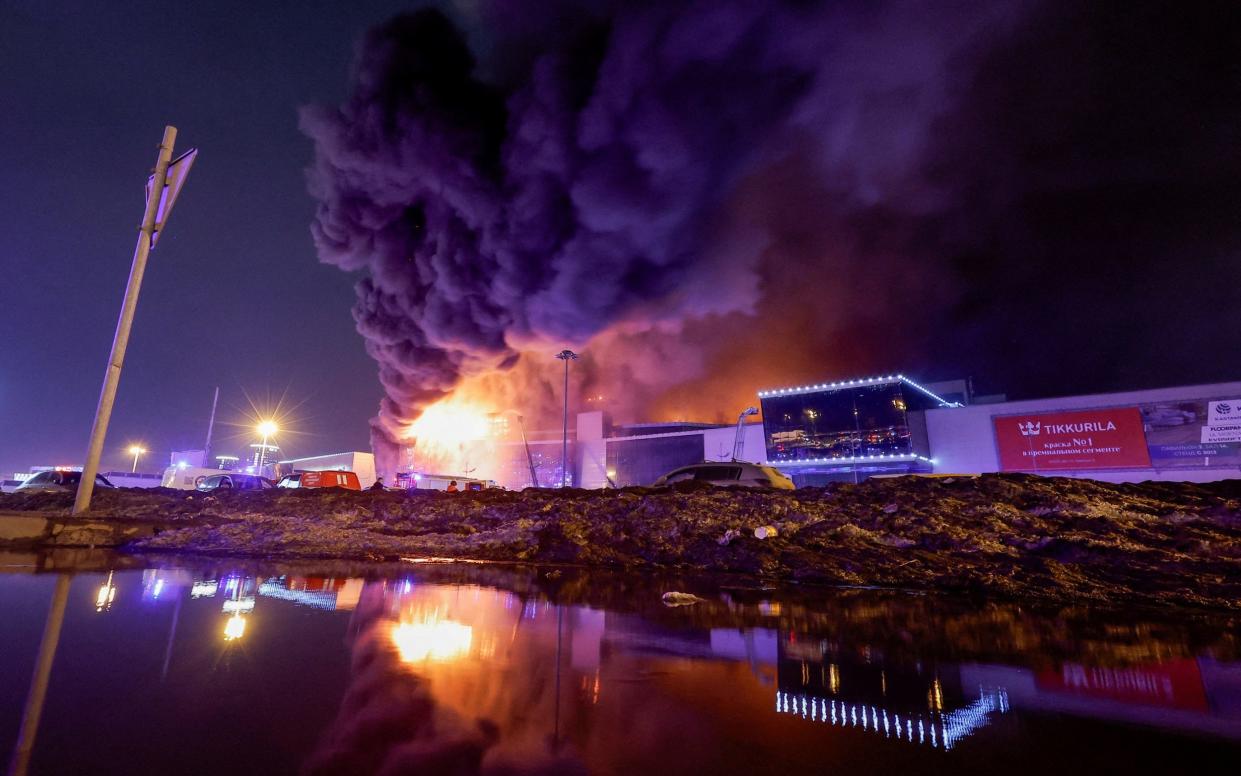Moscow concert attack ‘terrorists have no nationality’, Tajik president tells Putin

The president of Tajikistan on Sunday condemned the Moscow concert hall attack in a call with Russian leader Vladimir Putin, amid allegations the gunmen were Tajik citizens.
Russian media, including Telegram channels with links to the security services, and a lawmaker have alleged that the four suspected assailants were Tajiks.
Russian authorities have said only that four suspects arrested after Friday’s attack were foreign nationals and Tajikistan has rejected the initial claims its citizens were involved.
“Terrorists have no nationality, no homeland and no religion,” President Emomali Rahmon told Putin in a phone call, the Tajikistan president’s office said in a statement on Sunday.
The language echoed similar previous remarks made by Mr Rahmon regarding extremism. The statement contained no direct reference to reports of the alleged shooters’ citizenship.
The Islamic State (IS) group, which has claimed responsibility for the attack, is active in Tajikistan, a Central Asian nation which shares a border with Afghanistan.
In a graphic video released on Saturday night, the Islamic State boasted about the “bloody attack on Christians”. The person filming the video from the scene of Crocus City Hall can be heard saying: “Bring the machine gun. Kill them and have no mercy on them.”
The Kremlin said on Sunday the two leaders had agreed to “intensify” their joint counter-terrorism efforts.
On Saturday, Tajikistan’s foreign ministry said reports that its citizens were involved were “fake”. The interior ministry also said two of those initially named in Russian media were in Tajikistan at the time of the attack.
Putin said on Saturday that 11 people had been arrested over the attack, including the four suspected gunmen, who it said were trying to flee to Ukraine.
IS has said it was behind the attack on multiple occasions since Friday, though Russian officials have not publicly addressed the claims of responsibility.


